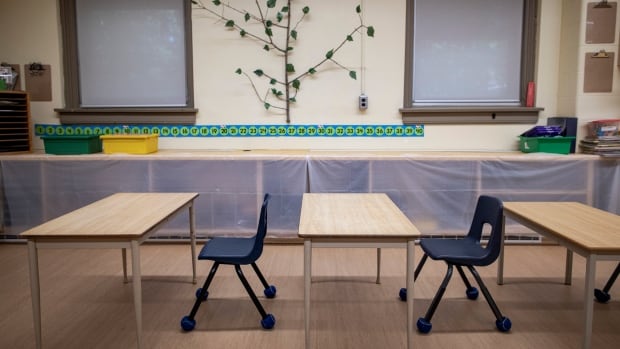
The battle over the Saskatchewan government’s school pronoun policy is likely far from over, says a constitutional expert.
“There are very motivated parties on both sides,” said Eric Adams, a professor in the faculty of law at the University of Alberta.
Last month, the province announced that all students under 16 needed parental consent to change their names or pronouns at school.
A Regina judge issued an injunction Thursday against the controversial policy until a full hearing can take place.
“The importance of the governmental policy is outweighed by the public interest of not exposing that minority of students … to the potentially irreparable harm and mental health difficulty of being unable to find expression for their gender identity,” stated the decision.
Premier Scott Moe responded hours later with a written statement, saying he’ll use the notwithstanding clause to override the ruling. He said the legislature will be reconvened Oct. 10 for that purpose, 15 days before the scheduled beginning of the fall session.

Adams said if the government invokes the notwithstanding clause as planned, that won’t be the end of the fight.
The other side can then seek another injunction if they feel the government made constitutional errors.
“I suspect there will be continuing legal opposition. They may or may not seek a second injunction,” Goldenberg said.
If that second injunction request proves successful, the government can then appeal it, he said.
Obtaining a second injunction could prove difficult, but not impossible, he said. Canadian courts have taken a “hands off approach” to notwithstanding clause use in the past, he said. In fact, courts have never overruled provincial governments’ use of the clause, as long as the rules were followed, he said.
Even in a 1988 case where the Quebec government used the notwithstanding clause on every bill it was passing that session, the Supreme Court of Canada sided with the government.
However, “that was a long time ago,” and none of those justices remain on the Supreme Court, Adams said.
Adam Goldenberg, a partner with McCarthy Tétrault and legal counsel for UR Pride, which filed the initial injunction request, said the government policy cannot be enforced, for now. He said that’s good news for Saskatchewan students.
“As of today, gender-diverse young people in Saskatchewan who have a trusted adult at school whom they want to respect them and recognize for their gender identity can have that trusted adult … refer to them by their chosen name, their chosen pronouns, even if they haven’t come out to their parents so don’t have parental consent,” Goldenberg said. “That’s a good thing and that’s the reality in Saskatchewan.”
Adam Goldenberg, lead counsel for UR Pride, speaks to CBC News Network after Saskatchewan Premier Scott Moe said he would use the notwithstanding clause to override an injunction on his government’s naming and pronoun policy. Goldenberg says Moe’s use of an ‘extraordinary’ constitutional power is ‘despicable’ and sets a ‘terrible precedent.’
